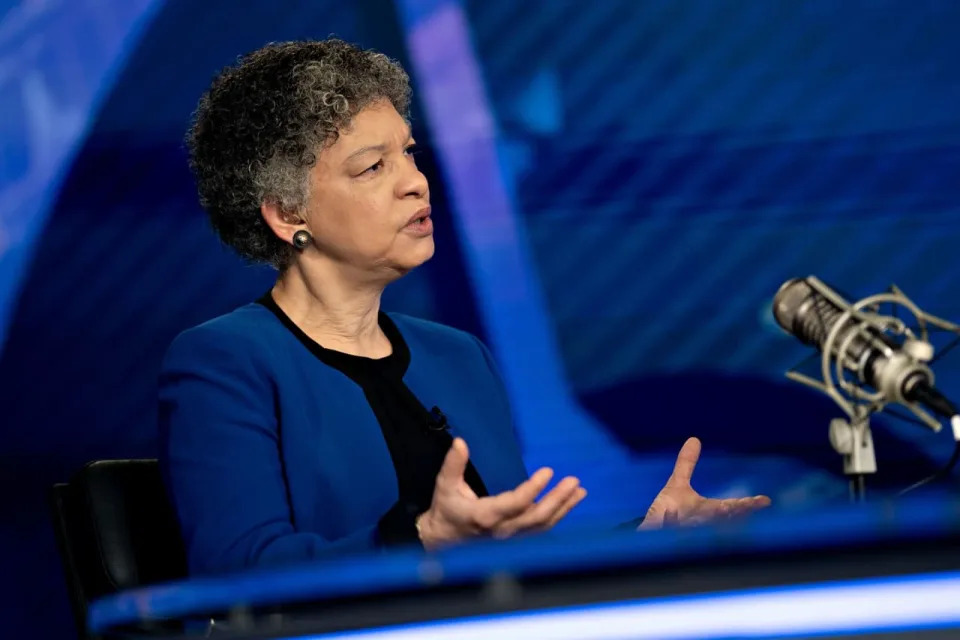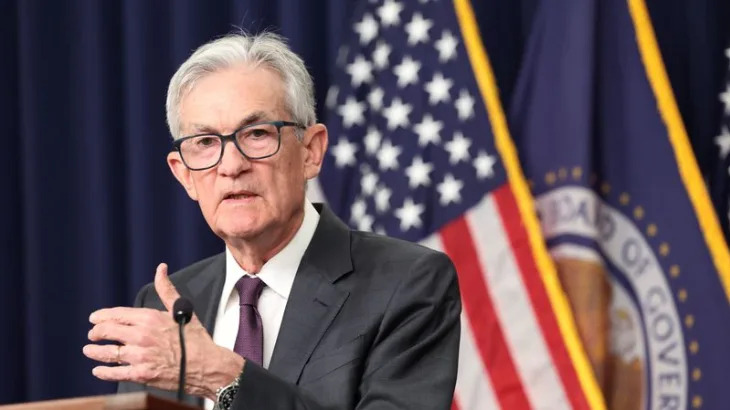
Stock and bond prices fell Friday, following a solid retail-sales report that could bolster the case that the economy is strong and may not need support in the form of lower borrowing costs.
Separately, a Federal Reserve official said it was too soon to say whether the central bank should cut interest rates at its meeting next month.
Another rate cut in December is “certainly on the table, but it’s not a done deal,” said Boston Fed President Susan Collins in an interview late Thursday. “There’s more data that we will see between now and December, and we’ll have to continue to weigh what makes sense.”
The Dow Jones Industrial Average fell about 300 points , or 0.7%. The S&P 500 dropped more than 1%, and the Nasdaq Composite was down about 2%.
Bond yields climbed. The benchmark 10-year Treasury yield topped 4.5% for the first time since late May.
The latest moves highlighted investor uncertainty about whether the Fed is in a position to continue cutting rates as much as markets have come to expect—in part because the economy continues to hold up well.
On Friday, the Commerce Department said that retail sales gained 0.4% in October from September, better than economists’ forecasts for a 0.3% increase. Officials also revised their figures for September sales growth sharply upward to 0.8%, from an initial estimate of 0.4% growth.
“Various speeches by Fed officials show growing concern that disinflation is hitting a wall,” Jefferies analyst Thomas Simons wrote to clients after the data Friday. “But we do not think there will be enough evidence to confirm these hypotheses before the next meeting.”
The Fed’s next meeting is Dec. 17-18. Officials will see data on inflation and employment for November before that meeting.
Collins said Thursday she didn’t see any evidence that inflation was picking up due to new sources of strength in the economy, aligning herself with a view Fed Chair Jerome Powell expressed last week. Both of them suggested recent inflation stickiness has instead been an echo or “catch-up” effect of large price increases from the past few years, such as car insurance costs rising to reflect past increases in car prices that have since subsided .
“As far as I can tell, I do not see evidence of new price pressures,” said Collins. Firmer inflation in recent months instead reflects “the effects of the longer-term dynamics of past shocks,” she said.
The Fed cut interest rates at its two most recent meetings, beginning with a half-percentage-point reduction in September amid signs the labor market might be weakening. Officials lowered their benchmark rate by a quarter point, to a range between 4.5% and 4.75%, at their meeting last week .
Collins, who will take a turn next year as a voting member of the Fed’s rate-setting committee, said she supported both of those cuts. “We will get to a place where it will be appropriate to feel our way more slowly and more cautiously,” said Collins.
Expectations in futures markets for a December rate cut have bounced around in recent days. They jumped to around 80% on Wednesday, from 60%, after the October consumer-price index wasn’t as bad as feared . But then they fell back to 60% after Powell said Thursday that “stout” economic performance recently would allow the Fed to proceed carefully with rate cuts.
Collins said she thought it would be appropriate to continue lowering interest rates to a so-called “neutral” stance that neither spurs nor slows economic activity after more than a year in which the Fed held interest rates at a restrictive setting. Collins said she thinks policy is still restrictive.
“I don’t see an argument for maintaining restrictive policy when there is not evidence of new price pressures, and the old dynamics are perhaps unevenly and gradually resolving over time,” she said.
Write to Nick Timiraos at Nick.Timiraos@wsj.com





